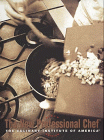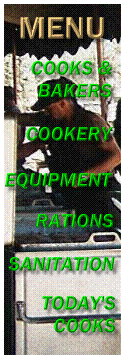
David Castle's Army Kitchen Truck
Field Messing in Forward Areas
Excerpted from the 1951 edition of Mess Management (TM 10-402)
[Temporary messes] [Kitchen trucks] [Feeding standard]
Feeding troops in combat situations has always been tough. Since commanders recognize that good morale comes with serving hot chow to troops in the combat zone, aggressive commanders instructed their cooks to bring one or two hot meals forward each day, often under the cover of darkness. These commanders knew what happened to morale when their troops subsisted on C-rations for weeks on end.
William F. Ross and Charles F. Romanus wrote in The Quartermaster Corps: Operations in the War Against Germany: "In most situations, [the commander] could modify tactical dispositions enough to make feasible one expedient or another for feeding hot food to his troops. The initiative and effectiveness of mess personnel in the subordinate companies reflected the interest of the battalion commander. It was observed that in aggressive units, mess personnel were also aggressive and provided more cooked meals in the front lines."
Conditions close to the front lines are unstable, for the work must be performed under the danger of continuous combat conditions. Since positions are likely to change frequently, mess personnel must make daily changes in order to serve the men. Often the mess must serve men deployed over a wide area.
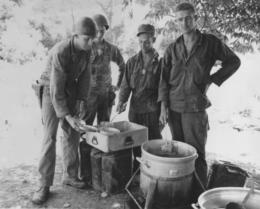
It is probable that regular meal hours will not be observed, but that the mess will operate on a 24-hour basis to enable the men to eat whenever it is possible. When possible, the men are sent to the mess area in groups, usually in platoons or sections, to avoid congestion and to facilitate serving.
Food may be delivered in insulated containers to a detail of two or three men in advanced positions by other men of the unit. It is good for a cook to accompany this food forward not only to serve it but that he realize fully his share in the combat responsibilities.
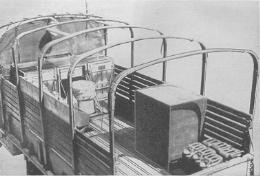
When the truck arrives in the forward areas, a serving line is set up, usually at the truck itself. Men of the unit come to the truck as to any other temporary kitchen. The truck makes as many stops as necessary to feed all groups of the unit.
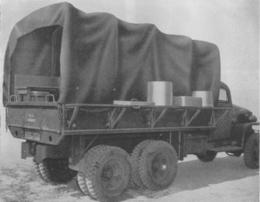
Hot meals and hot coffee should reach the men in the front lines at least twice a day. By careful supervision of the work of the cooks and with the use of the facilities at hand, the mess steward can see that the men of the unit are provided with good meals at a time when they need them most.
David Castle's Restored Army Kitchen Truck
Bibliography
Dept. of the Army. Mess Management. TM 10-402. Washington: GPO, March 21, 1951. 80pp. This information is taken from page 44.
February 2000
| Bulletin Board | Keyword Search |
| Bookstore | Links |
| About Us | Recent Additions |

